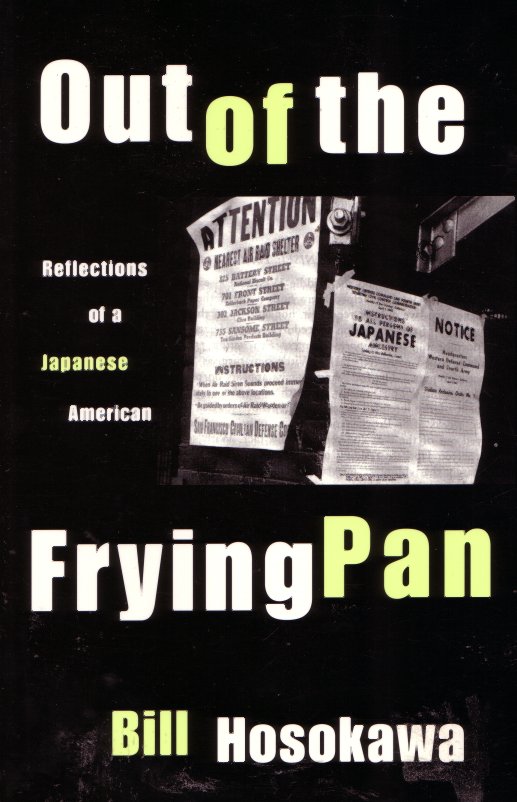
Out of the Frying Pan

This book is by a Japanese American journalist and includes material about the internment camps plus other parts of his life.
Even when he was in elementary school there was anti-Japanese prejudice. He was due to play the part of George Washington in a school play, but some parents objected to a “Jap boy” playing the father of our country. The principal overrode their objections, apparently.
As he was developing his career as a journalist he was stationed in China for a while, traveled to Japan and back to the US. He seems to believe that war between the US and Japan was inevitable since the US wanted Japan out of China and there was absolutely no way they were going to voluntarily leave.
He writes about his area of Seattle where, before the internment, parents demanded that 27 Japanese American women secretaries be fired. They all voluntarily resigned. He also writes about how the early evacuations started, beginning with Terminal Island and moving on from there.
He notes that another name for the Puyallup Assembly Center was Camp Harmony. This was where he was sent. On June 12, 1942, he writes, soldiers with machine guns were staring down at them from guard towers whereas before the guard weren't very noticeable. Apparently it was a reaction to the Japanese bombing Dutch Harbor in the Aleutian Islands.
He has an interesting section on the US Constitution.
The Fifth Amendment: “no persons shall be held in answer for a capital, or otherwise infamous crime, unless on a presentment or indictment of a Grand Jury...nor be deprived of life, liberty, or property without due process of law.” The evacuees were not granted any form of due process of law. They were told to evacuate their homes and report to the assembly centers (and later internment camps). They were not charged with any crime nor given any trial and there was no Grand Jury involvement anywhere, all being a direct violation of the Fifth Amendment.
The Sixth Amendment: “in all criminal prosecutions, the accused shall enjoy the right to a speedy and public trial..and to be informed of the nature and cause of the accusation; to be confronted with the witnesses against him.” None of the people were even given a trial. They were not informed of “the nature and cause” of any accusation, and no witnesses were presented in their favor.
The Fourteenth Amendment: no state “shall deprive any person of life, liberty, or property, without due process of law, nor deny to any person within its jurisdiction the equal protection of the laws.” There is no doubt at all that what was done was in total violation of this Amendment. (Although a strong case could be made in today's world for violation since “equal protection of the laws” is often not granted to gays, lesbians or transgendered people.”)
He also talks about the few trials that were held and how the government suppressed evidence that would have helped the defendants.
Main Index
Japan main page
Japanese-American Internment Camps index page
Japan and World War II index page
|